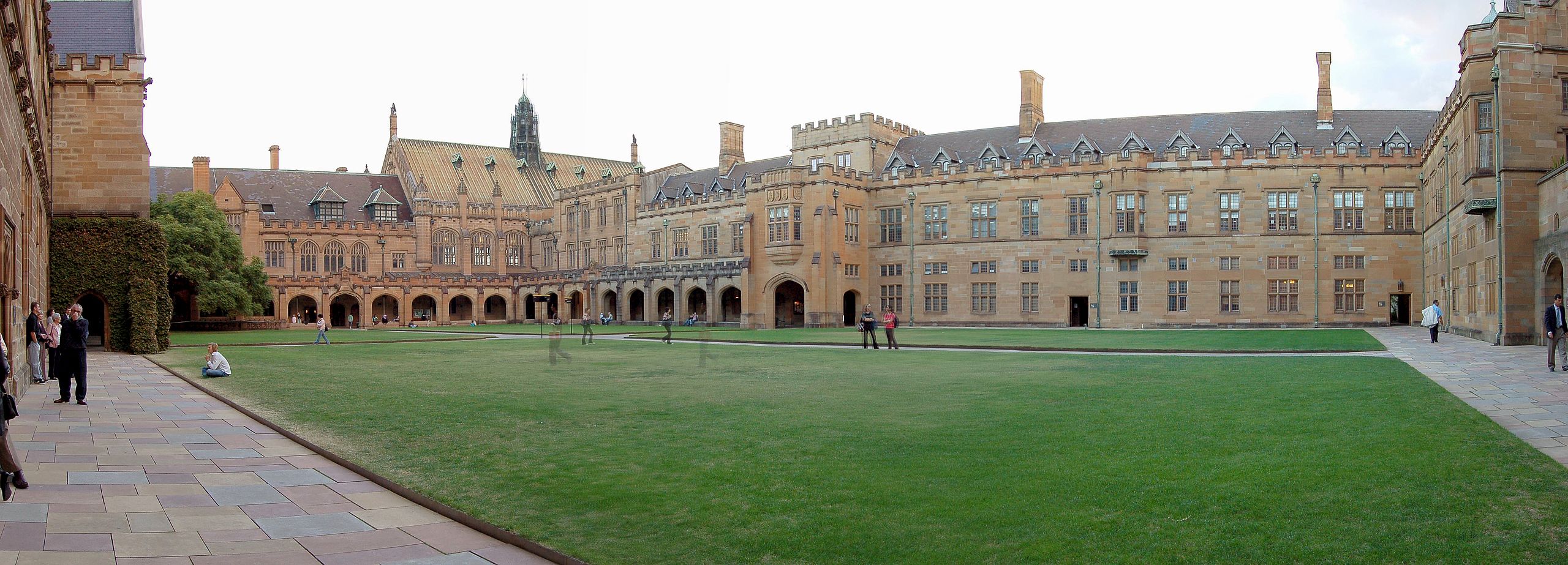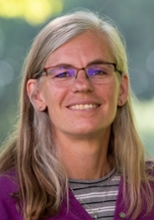DH Downunder 2018
Digital Humanities Summer Institute
3-7 December 2018
Hosted by Western Sydney University and the University of Sydney, at the University of Sydney's historic Camperdown Campus.
Register here!
DH Downunder is a Digital Humanities / Digital Research Methods Summer Institute in the tradition of DHSI and similar international summer institutes. We provide training in cutting edge Digital Research methods and approaches. People with all kinds of backgrounds are welcome, including students, academic staff, PhD and postdoctoral researchers, librarians and professional staff.The classes have a humanities/social sciences orientation, but people from other disciplines are also welcome.
Many thanks to the School of Literature, Art and Media, and the Department of Media and Communications at the University of Sydney, and the Digital Humanities Research Group at Western Sydney University for generously sponsoring the event by providing catering!
Location
In 2018 DH Downunder takes place from 3-7 December, on the campus of Sydney University in the central Quadrangle building. It is co-hosted by the University of Sydney and Western Sydney University, with classes also offered by colleagues from the Australian National University, and the University of Victoria in Canada.

Programme
For convenience, the programme is offered as a selection between week-long ‘streams’ of related classes that are likely to appeal to people with certain interests. The streams of Digital Media Research, Distant Reading, and Projects & Writing are collections of half-day and one-day classes that can stand alone, so you are welcome to mix and match these as suits you. Databases, and R & Data Wrangling are each a series of half-day classes that build on each other through the week, so it will be difficult to attend later sessions in the week if you did not attend earlier ones. Linked Open Data is full day classes Tuesday-Thursday, with optional half days on Monday and Friday, so you will not be able to attend most activities in other streams if you select Linked Open Data.
Streams
| Name | Taught by | Time | Notes |
|---|---|---|---|
Introduction to Linked Open Data | Terhi Nermikko-Fuller, ANU | full days Tues, Weds, Thurs | cap of 10 participants max, who should plan to attend all three days. |
Projects and Writing | Rose Faunce, ANU, Ray Siemens, Lynne Siemens and Alyssa Arbuckle, University of Victoria, Canada | full days Tues, Weds, Thurs + Mon afternoon | a variety of stand-alone sessions that can be mixed and matched with sessions from other streams |
Digital Media Research | Organised by Justine Humphry and Jonathon Hutchinson, Sydney University, with sessions by Francesco Bailo, Chao Sun, and others | full days Tues, Weds, Thurs + Mon afternoon and Fri morning | a variety of stand-alone half-day sessions that can be mixed and matched with sessions from other streams |
Databases in theory and practice | Susan Ford, ANU | afternoons | each session builds on previous session |
R for Data Wrangling and Visualisation | Hedvig Skirgård & Siva Kalyan, ANU | afternoons | Weds-Thurs are intermediate sessions that require previous knowledge or attendance at Mon-Tues. |
Distant Reading | Michael Falk, Rachel Hendery, Western Sydney University, and Monika Bednarek, University of Sydney | mornings | a variety of stand-alone half-day sessions that can be mixed and matched with sessions from other streams |
Please see the more detailed programme for a comparison of class times, and the individual information about each class for a description and any required preparation.
Other activities
Monday morning: Registrations, welcome, and opening public lecture. Morning classes do not have a session on Monday as participants will attend the opening instead.
Monday evening: Digital Publics: Hidden and Untraceable Data - A Sydney Ideas event
Human-machine communication is increasingly embedded in our everyday lives though the rise of social media, the Internet of Things (IoT), linked data, and so-called smart technologies such as connected homes, smart cars, and digital assistants. As our use of these technologies continues to grow and integrate with our personal lives, the early promise of machines increasing user communication and participation, seems to have faded towards a world where humans primarily only communicate with machines and must participate or risk being excluded. These integrated and connected processes of human-machine communication are increasingly less visible overtime as they become embedded in platforms, sensors and autonomous systems, while the obvious concern for citizens is an increase of user tracking and surveillance. What is of greater concern, and often underexplored, is our ability to, as James W. Carey (2005) notes, disentangle the consequences of entangled connected devices from the wider world of power and ambition. Understanding this critical ambition should be the role of citizens, who inform and are guided by leading public figures in these arenas.
This is precisely the role researchers from the Humanities, Social Sciences and Human-Computer Interaction disciplines should be engaging in. However, in a post-Cambridge Analytica world, gaining access to these sorts of environments for research and critical examination is increasingly difficult. This is a critical moment for expertise from a number of areas to collaboratively design and employ new approaches towards digital research methods, that can inform and work with publics, advise policy makers, and guide appropriate best practice for users of human-machine communication environments.
To explore this area, we have a panel of leading experts discussing the current and emerging themes of human-machine communication, who will apply their critical lens to this increasingly important area for citizens.
The panel will be expertly panelled by Dr Fiona Martin, Senior Lecturer University of Sydney.
Tuesday lunchtime: On Tuesday during the lunch break (12:30), there will be a tour of the rare books and special collections area of the Sydney University library. This is limited to 10 participants and there will be a sign-up sheet available on Monday for people to put their names on.
Tuesday from 1:30-5pm there will be a meeting of the Australian-Canadian Partnership for Open Scholarship (CAPOS), organised by the Analysis & Policy Observatory (APO), the Digital Humanities Research Group at Western Sydney University, INKE (Implementing New Knowledge Environments), and the Sydney Digital Humanities Research Group, Sydney University. Apologies that this clashes with a number of the workshops. If you happen to be available on Tuesday afternoon, however, and interested in this, you can register here. If you are interested and can't attend, you should contact the organisers via the EventBrite page to be notified about future CAPOS activities.
Friday all day: DH Pathways event, organised by the HASS-DEVL project. (See #DHPathways18 for other Pathways events being run around the country). Participants of other streams will generally be able to attend this, as classes that usually have afternoon sessions do not have a class on Friday, the Linked Open Data stream only has an optional Q&A session on Friday morning, and the Projects and Writing stream has no class on Friday. If you will be around on Friday, it is essential to register for catering purposes at the DH Pathways registration page, even if you are already registered for the rest of DH Downunder. (This has no additional cost).
Friday afternoon: closing public lecture, digital poster session and wrap-up.
Registration
We have attempted to keep registration as low-cost as possible. We had originally thought this would mean it would not include catering, but the School of Literature, Art and Media, and the Department of Media and Communications at University of Sydney have now kindly stepped up to provide this at their cost.
While it is encouraged to attend for the whole week, we understand that people have other pressures on their time, and it is possible to register for only a single day. There is a reduced registration cost for this. The fee waivers that were available for people with financial difficulties have now unfortunately all been allocated.
You can register here
Accommodation
Accommodation is not included in your registration. We recommend booking on-campus accommodation at one of the residential colleges linked from this page. We have rooms reserved for our participants at St Andrews College ($66 per night for a single room with shared bathroom, $110 for ensuite bathroom) and at Sancta Sophia College ($115 per night, ensuite bathroom). These can be booked by contacting the respective college through their website and mentioning that you are with DH Downunder. Alternatively we can recommend Billabong Gardens and the Sunrise Lodge as safe and comfortable budget hotels/hostels or the Adina Apartment Hotel as a less budget option within walking distance of Sydney University.
Wifi
Guest wifi will be available. The details will be provided on arrival.
Academic Credit for Students
If you are a Western Sydney University postgraduate student, you can get course credit for participating by enrolling in Digital Humanities Research Methods (PG) and carrying out the extra required online work over the summer. If you are a student from another university, please talk to your institution about possibilities for having your participation in DH Downunder formally recognised.
Opening public lecture
Professor Ray Siemens, University of Victoria, British Columbia, Canada.
Enacting Open Social Scholarship, in the  Canadian Social Knowledge Institute
Canadian Social Knowledge Institute
Open social scholarship involves creating and disseminating research and research technologies to a broad audience of specialists and active non-specialists in ways that are accessible and significant to everyone. My talk traces its conceptual roots in open access and open scholarship movements, the digital humanities’ methodological commons and community of practice, contemporary online practices, and public facing “citizen scholarship,” with an action-oriented mandate toward the establishment of the Canadian Social Knowledge Institute (C-SKI) and its initial activities.
Closing public lecture
Associate Professor Lynne Siemens, University of Victoria, British Columbia, Canada
 University-Industry Partnerships: Their development in the Humanities
University-Industry Partnerships: Their development in the Humanities
While university-industry partnerships are common on the science side of campus, they are less so within the humanities. Despite this, these collaborations have potential for knowledge production and translation. This raises several questions about the way that these partnerships develop in the humanities. This paper explores one example of a university-industry partnership in this environment. Using the Implementing New Knowledge Environments: Networked Open Social Scholarship with academics, libraries and academic-adjacent organizations as partners as a case study, issues related to benefits, challenges, measures of success and desired outcomes of these types of partnerships in the humanities will be examined.
Digital project showcase
You are invited to showcase your digital projects at a session on Friday 7th. If you would like to take part in this, please advise by emailing Rachel Hendery at dhdownunder.au@gmail.com with details of the project you would like to show. You will need to bring a laptop to show it on, and/or a printed poster in A1 or A0 size. For any special technical or space needs, please email to inquire whether we can accommodate them.
Organising committee
This event has been organised by Rachel Hendery (Digital Humanities Research Group at Western Sydney University), Justine Humphry (SLAM, University of Sydney) and Jonathon Hutchinson (SLAM, University of Sydney), with further assistance and input gratefully received from the following people: Ingrid Mason (AARNet), Sydney Shep (Victoria University, NZ), Kath Bode (ANU), Tully Barnett (Flinders University), Terhi Nermikko Fuller (ANU), and Francesco Borghesi (Sydney Digital Humanities Research Group).
Inquiries and contact
For any queries or further information, please contact Rachel Hendery at dhdownunder.au@gmail.com
Mobile options:
